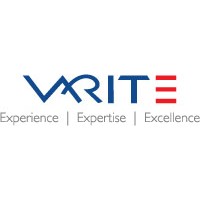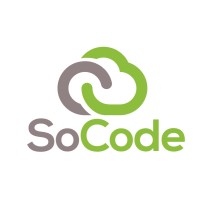

AI/ML Developer
⭐ - Featured Role | Apply direct with Data Freelance Hub
This role is for an AI/ML Developer on a contract basis, offering competitive pay. The ideal candidate has 5+ years in software/ML engineering, expertise in LLMs, GNNs, and MLOps practices, with an MSc/PhD or equivalent experience. Remote work is available.
🌎 - Country
United Kingdom
💱 - Currency
£ GBP
-
💰 - Day rate
-
🗓️ - Date discovered
August 13, 2025
🕒 - Project duration
Unknown
-
🏝️ - Location type
Unknown
-
📄 - Contract type
Unknown
-
🔒 - Security clearance
Unknown
-
📍 - Location detailed
Stevenage, England, United Kingdom
-
🧠 - Skills detailed
#Data Pipeline #Mathematics #Cloud #Langchain #Azure #ML (Machine Learning) #"ETL (Extract #Transform #Load)" #AI (Artificial Intelligence) #TensorFlow #Code Reviews #PyTorch #Python #Neural Networks #Knowledge Graph #TigerGraph #AWS (Amazon Web Services) #Computer Science #Libraries #Neo4J #Databases #Databricks #REST (Representational State Transfer) #Terraform #Graph Databases #Spark (Apache Spark) #Batch #GCP (Google Cloud Platform) #Classification #Kubernetes
Role description
Lead the creation of production-grade AI systems that combine the state of the art techniques in AI/ML including but not limited to classical machine learning algorithms, modern techniques such as large-language models (LLMs), agentic AI frameworks, graph-neural networks (GNNs) and knowledge graphs to deliver autonomous, high-value business capabilities.
Key Skills
• Design, pre-train, fine-tune and evaluate domain-specific LLMs; incorporate Retrieval-Augmented Generation (RAG) and prompt-engineering techniques to maximise factual accuracy and controllability.
• Build and orchestrate multi-agent architectures with frameworks such as AutoGen, LangGraph, CrewAI and LangChain to enable autonomous task planning, tool use and self-improvement.
• Experience and / or knowledge in AI safety techniques.
• Implement real-time and batch inference services; expose LLM/agent capabilities through secure REST/gRPC or event-driven APIs.
• Construct and maintain enterprise-scale knowledge graphs that feed ranking, recommendation and search pipelines.
• Develop and optimise graph-neural-network models for link prediction, node classification and reasoning over structured and semi-structured data sets.
• Establish MLOps practices—data/feature versioning, reproducible experiments, CI/CD, automated retraining and rollback—across cloud and on-prem platforms.
• Mentor engineers through code reviews, design sessions and internal workshops; influence technical roadmaps and research agendas.
Core Qualifications
• MSc/PhD in Computer Science, Machine Learning, Mathematics or related field, or equivalent industry experience.
• 5+ years software/ML engineering; 5+ years hands-on with deep-learning frameworks (PyTorch, TensorFlow, JAX) and distributed training on top of Python language.
• Demonstrable experience pre-training or extensively fine-tuning LLMs (GPT, Llama, Mistral, etc.) on multi-billion-token corpora, including RLHF or DPO techniques.
• Production experience with agentic frameworks and autonomous AI agents that learn and adapt in real-world environments.
• Hands-on knowledge of GNN libraries (PyTorch Geometric, DGL, Deep Graph Library) and graph databases (Neo4j, TigerGraph, Neptune).
• Proven ability to architect data pipelines with Spark/Flink/Databricks and deploy on AWS, GCP or Azure using Kubernetes and Terraform.
Preferred / Bonus Skills
• Experience optimising transformer models for edge devices (quantisation, pruning, distillation).
• Contributions to open-source GenAI projects, patents or peer-reviewed publications.
Lead the creation of production-grade AI systems that combine the state of the art techniques in AI/ML including but not limited to classical machine learning algorithms, modern techniques such as large-language models (LLMs), agentic AI frameworks, graph-neural networks (GNNs) and knowledge graphs to deliver autonomous, high-value business capabilities.
Key Skills
• Design, pre-train, fine-tune and evaluate domain-specific LLMs; incorporate Retrieval-Augmented Generation (RAG) and prompt-engineering techniques to maximise factual accuracy and controllability.
• Build and orchestrate multi-agent architectures with frameworks such as AutoGen, LangGraph, CrewAI and LangChain to enable autonomous task planning, tool use and self-improvement.
• Experience and / or knowledge in AI safety techniques.
• Implement real-time and batch inference services; expose LLM/agent capabilities through secure REST/gRPC or event-driven APIs.
• Construct and maintain enterprise-scale knowledge graphs that feed ranking, recommendation and search pipelines.
• Develop and optimise graph-neural-network models for link prediction, node classification and reasoning over structured and semi-structured data sets.
• Establish MLOps practices—data/feature versioning, reproducible experiments, CI/CD, automated retraining and rollback—across cloud and on-prem platforms.
• Mentor engineers through code reviews, design sessions and internal workshops; influence technical roadmaps and research agendas.
Core Qualifications
• MSc/PhD in Computer Science, Machine Learning, Mathematics or related field, or equivalent industry experience.
• 5+ years software/ML engineering; 5+ years hands-on with deep-learning frameworks (PyTorch, TensorFlow, JAX) and distributed training on top of Python language.
• Demonstrable experience pre-training or extensively fine-tuning LLMs (GPT, Llama, Mistral, etc.) on multi-billion-token corpora, including RLHF or DPO techniques.
• Production experience with agentic frameworks and autonomous AI agents that learn and adapt in real-world environments.
• Hands-on knowledge of GNN libraries (PyTorch Geometric, DGL, Deep Graph Library) and graph databases (Neo4j, TigerGraph, Neptune).
• Proven ability to architect data pipelines with Spark/Flink/Databricks and deploy on AWS, GCP or Azure using Kubernetes and Terraform.
Preferred / Bonus Skills
• Experience optimising transformer models for edge devices (quantisation, pruning, distillation).
• Contributions to open-source GenAI projects, patents or peer-reviewed publications.






